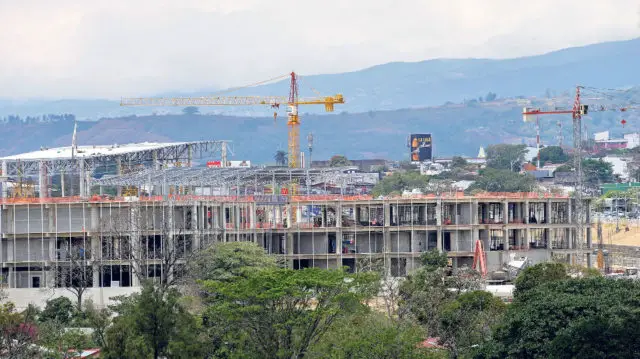All projects that obtain the
According to the Costa Rican Chamber of Construction (CCC) and the CFIA, that situation will cause a 9% increase in the cost of construction including social interest housing. Randall Murillo, executive director of the CCC, said there was a misunderstanding with Transitory V of the Law on Strengthening Public Finances, which establishes exemptions and differentiated rates for the payment of VAT during the first 3 years of application of the legislation.
However, Juan Luis Montoya Segura, Tax Procurator, cleared the doubts on September 9th and clarified that the exemptions and differentiated rates will only apply for projects that obtain a visa before that date.
The aforementioned transitory set an exemption for projects approved before October 1st and executed during the 1st year after the enactment of the Law, 4% for the 2nd year, and 8% for the 3rd year. Murillo added that they fear a contraction of the construction sector because people and companies will curb investments due to the new costs of 13% of the VAT.

The Minister of Housing, Irene Campos, confirmed that the cost of housing would rise between 7% and 9%. “It varies (the amount) because the VAT tax is on services, because the material tax already existed, what changes are services, such as topography, engineering, and transport of materials”, Campos explained.
According to the CCC, construction in Costa Rica produced, during the 2nd quarter of 2019, 166,000 direct and 292,000 indirect jobs.
Ileana Aguilar, president of the CFIA, expressed concern about this matter and did not rule out that they seek a modification to the Law. “The construction sector is very informal. For example, the man who does the freight probably has no electronic invoice or formal accounting. Well, that man had to begin to guide him to enter the formality, the same happens with the one who places the canoes or the windows.
“Then, to help the sector and enter the formality within a period of 3 years, along with the deputies, a gradual collection scheme was discussed so that everyone organized little by little”, Aguilar added.
The head explained that all projects that are approved before October 1st will have a code and professionals who perform services in those constructions must write it down on their invoices to be exonerated.
Per day, the CFIA receives between 800 and 1,000 visa applications, the whole process takes about 2 to 6 months and also goes through the review of Firefighters, Municipalities, AyA, MOPT, and the Ministry of Health, among others.
How did they calculate it?
“Before the materials were taxed, but the professional services were not. What we have done is taking the budget of several projects and apply the new taxes to specify the variations”, said Murillo. In Costa Rica, there are, according to the National Institute of Statistics and Census (INEC), 1,540,000 homes occupied by 5 million people.
Out of the total houses, 62% are already paid, 9.3% in the process of payment, 18% rented, 1.7% in precarious conditions, and 8.3% in other types of holdings.

